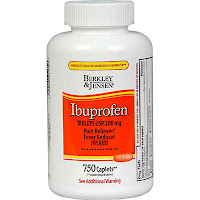WHAT
TO PACK IN YOUR
EMERGENCY HEALTH KIT
A health kit should be a home staple, since
you never know when illness or accidents may strike. “ It’s very important to
have your own first aid kit because when medical emergencies be happen, you can
immediately give initial treatment to remedy the problem and prevent to
minimize its complications.”
1. PARACETAMOL
Also known as over-the-counter acetaminophem,
this all-around painkiller can nip that killer headache , dysmenorrheal cramps,
toothache, and fever in the bud. It’s kid-friendly, too, so it’s safe for your
li’l bro or sis to taken in safe dosages.
2. IBUPROFEN
Just like paracetamol, ibuprofen is an OTC
drug that serves as a painkiller. The defference is that ibuprofen is a
non-steroidal anti-inflammatory drug (NSAID) Which means it can also used for
joint pains caused by inflammation.
3. ANTACID
If you feel a bit of discomfort in your
stomach – plus a lot of belching , nausea , and farting ( ewww, we know) –
hyperacidity may be the culprit , and popping an antacid may help ease your
tummy troubles.
4. ANTIHISTAMINE
.jpg)
These meds block allergens ( which cause you
to sneeze uncontrollably or develop a skin rash) from acting on your tissues,
and provide temporary relief.
5. LOPERAMIDE
Tummy having the runs? Loperamide is your
best bet to control diarrhea--- especially if the nearest loo is way too far!
To temporarily clear a stuffy nose, sniff a
whiff of analgesic balm—like this herbal-based one, which contains menthol
crystals, camphor , eucalyptus , and lavender oils.
In safe amounts, hydrogen peroxide can be
used either as a disinfectant or antiseptic. For minor cuts and wounds , pour a
small amount on a control ball and apply to the wound to clean it up before
bandaging.
11.TWEEZERS AND SCISSORS
12.ETHYL OR ISOPROPYL ALCOHOL
13. THERMOMETER
14.COLD PACKS
FIRST AID FOR COMMON EMERGENCIES
Know
these common first aid moves. Who knows? You might just save a life next time.
TREATING
BURNS!!!
.jpg) If
the burn is minor, run cool water over the area and dress up with sterile
bandage to protect it from friction. Major burns require professional help ,
but don’t touch clothing that has stuck to skin, and check for signs of
breathing.
If
the burn is minor, run cool water over the area and dress up with sterile
bandage to protect it from friction. Major burns require professional help ,
but don’t touch clothing that has stuck to skin, and check for signs of
breathing.
FIRST
AID FOR FAINTING!!!
Let
the victim lie on her back and elevate feet higher than heart level to get
blood flowing to the head. Loosen clothing especially belts and collars, and
check if pulse and breathing are strong and regular. Call for help ASAP!.
CONTROLLING
BLEEDING!!!
Immediately
lay the person down, and try to elevate the wound above heart level, if
possible. Apply direct pressure on the wound by pressing a clean, folded cloth
over it. If bleeding isn’t reduced, tie an elastic bandage as tourniquet
directly above the wound to control blood flow.
LINKAGE SITE:
Emailed for any Question and Suggestion:
.jpg)
.jpg)
.jpg)

.jpg)
.jpg)
.jpg)
.jpg)
.jpg)
.jpg)
.jpg)
.jpg)

.jpg)
.jpg)
.jpg)
.jpg)
.jpg)


.jpg)
.jpg)
.jpg)

.jpg)









